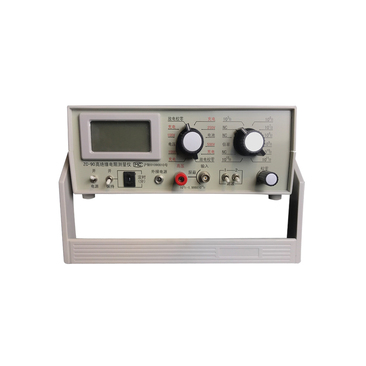custom mechanical tensile tester
Custom Mechanical Tensile Tester Enhancing Material Testing Capabilities
In the field of material science, the importance of precise and reliable testing cannot be overstated. Mechanical tensile testers play a crucial role in evaluating the strength, ductility, and overall properties of various materials. While standard tensile testers are widely used, there is an increasing demand for custom mechanical tensile testers tailored to the specific needs and applications of different industries. This article delves into the significance, design considerations, and benefits of custom mechanical tensile testers.
Understanding Tensile Testing
Tensile testing, also known as tension testing, is a method used to evaluate the mechanical properties of materials by applying a controlled tensile force until the material fails. The primary outputs of this test are the material's ultimate tensile strength, yield strength, elongation, and reduction of area. These parameters are critical for engineers and designers as they assess how materials will perform in real-world applications.
The Need for Customization
While off-the-shelf tensile testers may suffice for many applications, not all materials and testing requirements fit neatly into standard testing parameters. Industries such as aerospace, automotive, construction, and textiles may need specific testing configurations due to the unique characteristics of the materials they work with. Custom mechanical tensile testers address these specialized requirements by providing greater flexibility in design, setup, and testing procedures.
For example, composite materials often require specific gripping mechanisms to prevent slippage and ensure accurate test results. Additionally, certain materials may need specific environmental conditions during testing, such as extreme temperatures or humidity levels. A custom tensile tester can be designed to accommodate these conditions, ensuring that test results are both accurate and reproducible.
Design Considerations for Custom Mechanical Tensile Testers
The design of a custom mechanical tensile tester involves several considerations
1. Material Specifications The tester must be compatible with the materials being tested, which may include metals, polymers, composites, or textiles. Selecting the right components that can withstand the stress and strain of each material is crucial.
2. Load Capacity The tensile tester should have a load capacity that caters to the maximum expected strength of the materials being tested. This requires precise calculations and often leads to custom load cells or framing systems.
custom mechanical tensile tester

4. Gripping Mechanisms Standard grips may not suffice for all materials. Custom grips can be designed to minimize slippage and ensure that the load is applied evenly across the test specimen.
5. Data Acquisition and Analysis Modern tensile testers often incorporate advanced data acquisition systems. Custom testers can be integrated with software that is tailored for specific testing protocols, enabling real-time analysis and reporting of test data.
6. Safety Features Given the potential for high forces to be involved, custom testers should include adequate safety mechanisms to protect both the operator and the machine.
Benefits of Custom Mechanical Tensile Testers
Investing in a custom mechanical tensile tester yields several advantages
- Improved Accuracy Customization ensures that the machine is optimized for the specific materials and conditions being tested, leading to more accurate and reliable results.
- Enhanced Efficiency Custom testers can streamline the testing process by reducing the need for manual adjustments or inappropriate setups, resulting in quicker turnaround times for testing cycles.
- Greater Flexibility With a custom design, testers can adapt to evolving material properties or testing standards, allowing companies to stay ahead in their research and development processes.
- Cost-Effectiveness While the initial investment in a custom tester may be higher than purchasing a standard model, the long-term benefits realized through increased efficiency, accuracy, and flexibility can make it a cost-effective solution.
Conclusion
Custom mechanical tensile testers represent an essential advancement in material testing technology. By addressing the unique demands of various industries, these tailored solutions enhance the accuracy and efficiency of tensile testing processes. As the materials used in engineering and manufacturing continue to evolve, so too will the need for customized testing equipment that can meet these challenges head-on. Embracing the innovation of custom tensile testers will lead to better material understanding and, ultimately, improved product performance and safety.
-
Why the Conductor Resistance Constant Temperature Measurement Machine Redefines Precision
NewsJun.20,2025
-
Reliable Testing Starts Here: Why the High Insulation Resistance Measuring Instrument Is a Must-Have
NewsJun.20,2025
-
Flexible Cable Flexing Test Equipment: The Precision Standard for Cable Durability and Performance Testing
NewsJun.20,2025
-
Digital Measurement Projector: Precision Visualization for Modern Manufacturing
NewsJun.20,2025
-
Computer Control Electronic Tensile Tester: Precision and Power for the Modern Metal Industry
NewsJun.20,2025
-
Cable Spark Tester: Your Ultimate Insulation Assurance for Wire and Cable Testing
NewsJun.20,2025
 Copyright © 2025 Hebei Fangyuan Instrument & Equipment Co.,Ltd. All Rights Reserved. Sitemap | Privacy Policy
Copyright © 2025 Hebei Fangyuan Instrument & Equipment Co.,Ltd. All Rights Reserved. Sitemap | Privacy Policy
